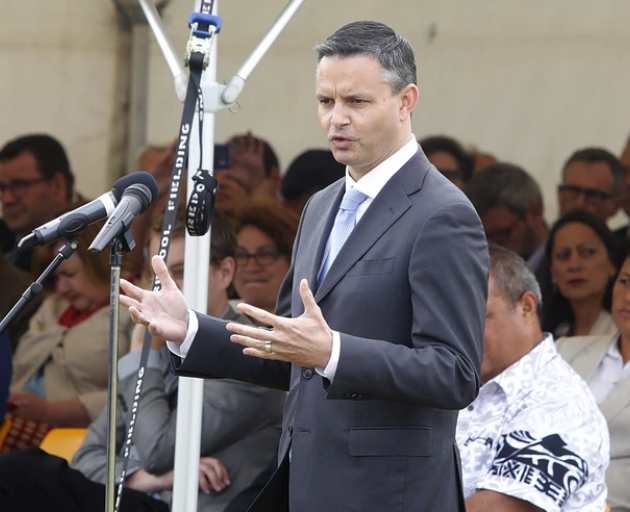
Kiwis would get a $250 annual dividend from a "Kiwi Climate Fund" set-up under a new climate change policy announced by the Green Party today - but farmers will face charges.
Leader James Shaw announced the refreshed climate change policy at a rally in Auckland today.
Several hundred attended, with Booker Prize-winning author Eleanor Catton among those standing at the back of the hall. NZ band Minuit performed before Mr Shaw's speech, with comedian Guy Williams the MC.

"Farmers will be able to reduce this cost by planting trees on their land ... no farmer I've talked to wants their child to inherit a world with longer droughts and drier rivers.
"The Greens are the only political party that has spoken the truth - that New Zealand has too many cows. And we've developed a plan to support farmers fix that problem."
Key changes to the Greens' policy include replacing the Emissions Trading Scheme (ETS) with a Kiwi Climate Fund that will charge polluters more.
That money will provide a guaranteed payment to people who plant trees and recycle remaining revenue to an annual dividend to all Kiwis aged 18 and older, expected to be about $250 per person in 2020.
The Greens want to pass a Zero Carbon Act in its first 100 days in government to bind all future governments to the goal of net zero emissions by 2050.
An Independent Climate Commission would be established to advise on climate targets as well as emissions prices.
The Greens said initial charges in the Kiwi Climate Fund by 2020 are expected to be:
- $40 per tonne of carbon dioxide emissions.
- $6 per tonne of nitrous oxide emissions from agriculture.
- $3 per tonne of methane emissions from agriculture.
- $40 guaranteed payment for each tonne of carbon sequestered by planting trees.
The previous climate change policy had only included the dairying sector, and now captures all agriculture sectors. The party said it expected charges on dairy pollution to be about the same under the new policy, after a nitrogen levy is factored in.
Previously the Greens had called for an initial price on carbon of $25 per tonne on CO2 equivalent emissions for all sectors except agriculture, which would pay $12.50.
Mr Shaw said a proper price on pollution will raise the living expenses of an average household by about $90-100 a year. That would be more than offset by a reduction to the bottom tax rate and the annual dividend, he said.
LABOUR POLICY
The Labour Party on Friday released its climate change policy, which includes a new goal of net zero carbon emissions by 2050.
Labour leader Jacinda Ardern also said all sectors including farmers would have to pay for their emissions within her first term, though their costs would initially be offset.
Labour has always planned to include agriculture in the Emissions Trading Scheme, but that was the first time Ms Ardern has set a deadline for their inclusion.
The party previously had a goal of reducing emissions by 40% from 1990 levels by 2030.
As previously announced, Labour would make legally binding emissions reductions targets and would set up a new government agency to oversee the work.
NATIONAL POLICY
New Zealand's net emissions have risen 64% since 1990.
National has set a target of reducing emissions to 11% below 1990 levels - a goal which is locked into the Paris Agreement on climate change.
National aims to reach the target by buying carbon credits, reducing transport emissions and investing in research to reduce agricultural emissions. It opposes putting agriculture into the ETS.











